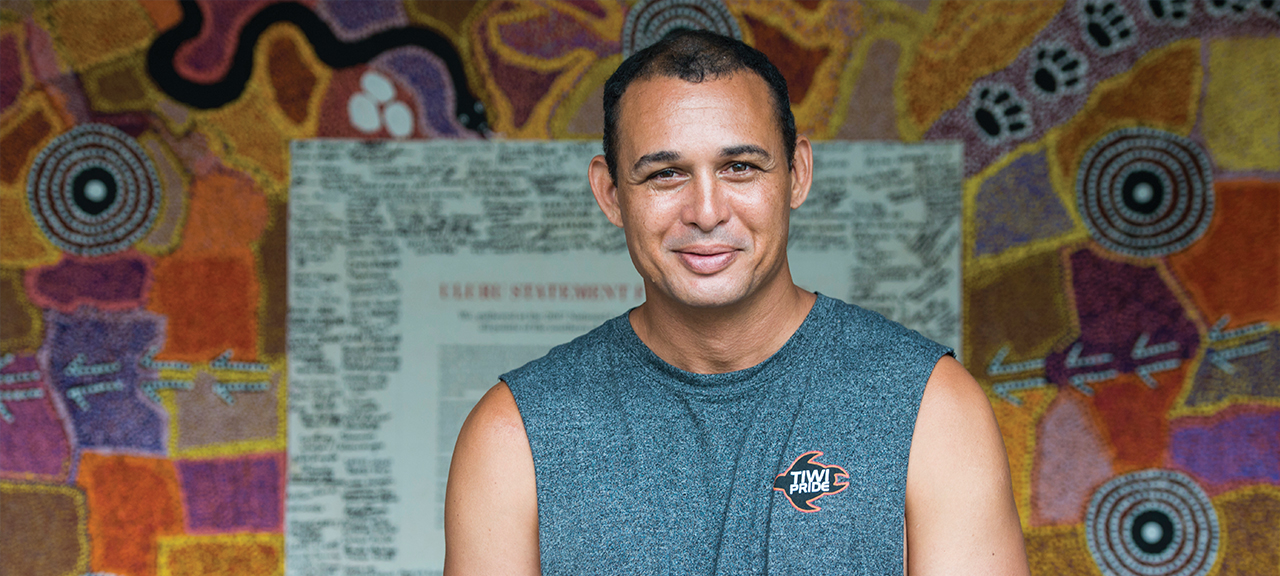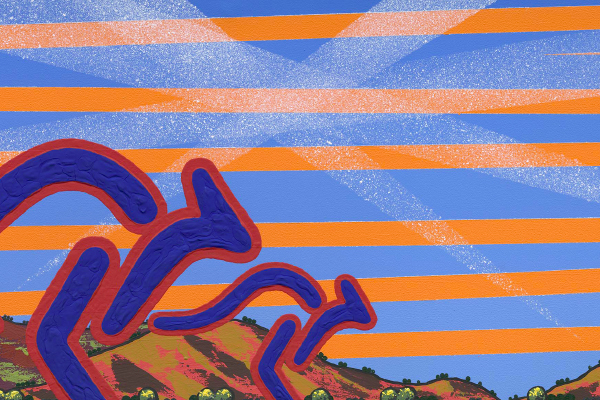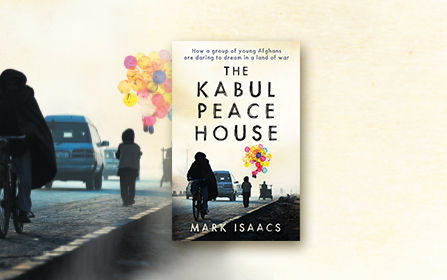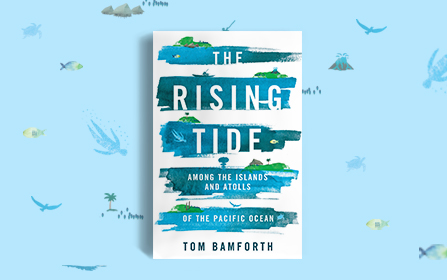An Invitation To Listen
29 Nov 2019 | Thomas Mayor
Australia is the only Commonwealth nation that doesn’t have a treaty with its Indigenous people. More and more, the general public is beginning to realise the crisis faced by the First Peoples of Australia partly due to the activist work done by amazing individuals like Thomas Mayor. A Torres Strait Islander man born on Larrakia country in Darwin, Thomas is a tireless campaigner dedicated to advancing the rights of Indigenous peoples. In the following extract from his book Finding the Heart of the Nation, Thomas extends an invitation to you to listen to the voices of the Aboriginal and Torres Strait Islander peoples and calls for unity in Australia for this important cause.
The Uluru Statement From The Heart was conceived from the collective experiences of Aboriginal and Torres Strait Islander peoples from all points of the southern sky. From an unprecedented process of dialogue and consensus building, it was forged from more than two centuries of hardship and struggle. It gives hope to a nation born from many nations that we may find our collective heart.
The eloquent words of the Uluru Statement make an affirmation that the first sovereign nations of the Australian continent and its adjacent islands have never ceded sovereignty – not when first colonised by the British, and not with the enactment of the Australian Constitution in 1901. The words remind us that colonisation did not extinguish the sacred link that no other civilisation on earth can claim – that the Aboriginal and Torres Strait Islander peoples are born from, remain attached to, and will return to be united with ancestors stretching back an amazing 60,000 years. At the same time, the Uluru Statement acknowledges the sovereignty that we all share, as citizens of Australia.
In haunting prose and with First Nations Voices that sing as a chorus, the Uluru Statement decries the scale of our crisis – disproportionate incarceration, children aliened from their families, young people languishing in detention – the awful effects of intergenerational trauma and systemic powerlessness writ large in the official statistics of Australia. It should be obvious that the dimensions of our crisis are not due to an inability to love and care for our own. But sadly, it seems it hasn’t been obvious in this country where there is still a toxic inertia that perpetuates the ‘great Australian silence’. In the Uluru Statement, First Nations people did more than lament our present and our past; it wasn’t created to only stir empathy. On 26 May 2017, through the Uluru Statement, Aboriginal and Torres Strait Islander peoples gifted all Australians with their vision – a roadmap to find the heart of the nation.
The Uluru Statement from the Heart was made through a process that imbued it with unprecedented cultural authority. Further, it carries the name of a sacred place and was given its name – Uluru – from those elders of the Mutitjulu community who are its traditional cultural guardians. They gave the name to the Statement because they want its proposals to succeed.
The Uluru Statement makes three very important proposals that will be transformative. They are in sequence: first, for a First Nations Voice enshrined in the Constitution; second, for a Makarrata Commission to supervise agreement making, or treaties; and, third, to oversee a process of truth-telling for the nation.
The establishment of a First Nations Voice enshrined in the Constitution is the priority reform – indeed it is now an urgent reform – because, unlike other racial or ethnic groups, laws and policies are being made by governments specifically about us, without us, and too often to our detriment. A Voice is the first reform because it will start to address this political disempowerment, setting us on the path for the future reforms of Treaty and Truth.
First Nations peoples – less than 3 per cent of the population of Australia – are relatively powerless to stop detrimental laws and policies in a system where they do not have a constitutional right to be heard before decisions are made. While First Nations people are systemically powerless, to the contrary, the federal Parliament has the explicit power to make laws specifically about us, based on our race. Many Australians would be unaware that section 51 (xxvi) of the Australian Constitution is the ‘Race Power’. While this power applies to people of different races, it has only ever been used to pass special laws for Aboriginal and Torres Strait Islander people.
The Constitution is the founding document and the rule book for the federation that is Australia. But the Constitution has been ‘without us’ since its inception in 1901. At first it actively excluded Aboriginal people. In the final decade of the nineteenth century, the colonial ‘founding fathers’ described Aboriginal people as a dying race. In 1967, through our own advocacy and the overwhelming support of the Australian people, these exclusions were removed. But today there is no reference in the Constitution to our historical and contemporary place in this country. Our country. Constitutional recognition by enshrining a Voice is a way of righting this historical wrong.
Constitutional enshrinement of the voice is also important so that it is guaranteed – we must protect what we build. All past national First Nations representative bodies have been replaced, repealed or defunded, subject to the whim of the ideology of the parliament, and so we have learnt that we must protect our voice so that it cannot be silenced.
The example that is most often recalled in this respect is the Aboriginal and Torres Strait Islander Commission (ATSIC). ATSIC was established by the Bob Hawke Labor government in response to the Barunga Statement and previous calls for political representation. The John Howard Liberal National Party Opposition had vehemently opposed its establishment. When Howard led the Liberal National Party to government in 1996, he immediately defunded ATSIC. He shut the representative body down completely in 2005, with the support of the Labor Opposition, despite the fact a wide-ranging review had just been completed for the body making recommendations about many of the governance and legitimacy challenges it was facing. Rather than working with us to improve ATSIC, the government destroyed it.
It was easy for a hostile federal government to silence ATSIC, because it was merely legislated – only an Act of Parliament. Constitutional enshrinement of a Voice is different. It can only be achieved by way of a referendum. A successful referendum will make it a permanent and politically strong voice. It will speak with a mandate from the Australian people that it must be heard. And because it will be irremovable, it can therefore be unapologetic in its advocacy.
"The words remind us that colonisation did not extinguish the sacred link that no other civilisation on earth can claim – that the Aboriginal and Torres Strait Islander peoples are born from, remain attached to, and will return to be united with ancestors stretching back an amazing 60,000 years."
While we do know a lot about what a Voice would be like, a detailed model for the Voice has not yet been determined. It is vital that First Nations people lead a process of co-designing any model. It is important that it is designed so that the representatives are fairly chosen by their communities, accountable to their communities, and if protected by the constitution, unapologetically for their communities. At any future referendum, of course, there must be an appropriate amount of detail on the model of the Voice presented with the constitutional amendment, so the Australian people are informed about the serious constitutional decision they are being asked to make.
No one is suggesting that this detail will be included in the constitutional text itself. Indeed, the constitutional amendment would be relatively modest, establishing the institution in a brief way. It would be in the same way that, for instance, the High Court of Australia is established in a single clause. But the detail of the Voice would be legislated after the referendum. This is a normal constitutional reform process, known by experts as ‘constitutional deferral’. What will actually be enshrined in the Constitution is the simple but important concepts that it is a First Nations representative body, and that its primary function will be to present the views of Aboriginal and Torres Strait Islander people to the Parliament when decisions are made about us. No one is asking for a third chamber of Parliament. The Voice proposal is constitutionally conservative.
The proposal for a Voice isn’t new and it isn’t too much to ask. First Nations have been struggling for fairly chosen representation and the right to self-determination since before Federation. This aspiration has been recorded in numerous statements and petitions, such as the 1938 Day of Mourning, the 1963 Yirrkala Bark Petitions, the 1972 Larrakia Petition, the 1988 Barunga Statement and today, the Uluru Statement from the Heart.
The Makarrata Commission is proposed to supervise the second and third proposals of Treaty and Truth. Makarrata is a Yolŋu word for a process of ‘coming together after a struggle’. In this ancient process that still exists today, the parties must bring truthfulness and a genuine intent to make an agreement about how the wrongs of the past will be resolved. At the completion of this process, relations are strengthened, and peace prevails. To begin this process, First Nations must have a representative Voice.
The Voice is the key step forward. Truth-telling alone does not produce solutions. We do. And the truth is justification for the solutions we seek and deserve. To use the truth to get meaningful, lasting treaties, and to affect the legislation and policies that have so fatally failed us, we must have a collective Voice to the Federal Parliament in Canberra. Our Elders have called for a Voice for generations.
We direly need representatives that we choose, who are accountable to us – not the parliament, a corporate sponsor or the media. The time has come for this proposal. We must not take `no’ for an answer. The line has been drawn in the red sand at Uluru.
‘We invite you to walk with us in a movement of the Australian people for a better future.’ When we gifted Australia with the Uluru Statement from the Heart, we struggled to be heard. The Government almost immediately dismissed it, and there was no money for a campaign. With the support of the Maritime Union of Australia I decided to travel the country with the canvas on which the Uluru Statement is written. I showed the artwork, the signatures and the words to thousands of people. I shared what I had heard, seen and felt at Uluru with small crowds in remote places, such as ancient meeting places like Yule River in the Pilbara, and densely populated places, including the capital cities. With other passionate Indigenous change-makers, I took the Uluru Statement to the people, and we started a peoples’ movement.
In June 2018, after 12 months on the road with the Uluru Statement canvas, I realised I had a compelling story to tell. I had met many Aboriginal and Torres Strait Islander people who had unique stories and perspectives that I thought should be heard. I floated the idea of telling our stories with my friend, Marcia Langton, who had just written the book, Welcome to Country. Marcia immediately encouraged me to start writing. So I did.
In these pages, you will find my story, and the stories of Aboriginal and Torres Strait Islander people from a variety of backgrounds and age groups, and from all around the country. Their stories are of struggle and hope. They tell of their people’s challenges and achievements. Most importantly, they will give you reason to walk with us.
For years to come, the Uluru Statement from the Heart will remain a live political statement, guiding us to an important destination. Between us and our destination are barriers. Barriers we can only overcome when a majority of Australian people in a majority of states say ‘Yes’ in a referendum to enshrine First Nation Voices in our constitution. This is a journey worth taking because we can only find the heart of the nation together.
All text is extracted from Finding The Heart Of The Nation: The Journey of the Uluru Statement Towards Voice, Treaty and Truth by Thomas Mayor
Available now from your local bookstore and online
Click here to find your preferred online retailer




